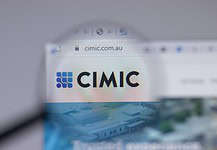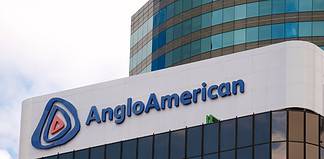CONVENTIONAL scaffolding methods in Australia have been challenged by the introduction of the Rosett Flex range of products by PERI Australia, revolutionising the way scaffolding is used across the country.
“There are many points of difference with the PERI Rosett Flex but the most prominent distinctive visual feature is that we use solid shaped rectangular components as a transom and ledger (horizontal items), in fact we do not consider the term transomin our inventory vocabulary, because they are the same universal item,” PERI national scaffolding manager Gary Hexter said.
“The reasoning and benefits for this radical design has come from accepting that scaffolding products have not evolved at the same pace as the industries they work in. They fall well short, particularly when it comes to addressing safety as a prerequisite in the industrial sector – so we went about finding the critical compliances needed on a scaffold, improved them, and at times reinvented them, with the aim of truly matching industry expectation and not just playing lip service to it.
“It has ignited strong debate and controversy which I consider to be a good thing. We are openly challenging our industry peers, the mining, oil, petro-chemical, LNG and energy communities, to question the scaffolding they presently use and the status quo and integrity of their scaffolding procedures, to strive to come up with something better.”
The PERI Rosett Flex was introduced in Australia to create a new scaffolding culture in an industry that Mr Hexter said had had little or no innovation, creativity or incentive for improvement. He said that for many years end users or purchasers of scaffolding and related products had been inundated with generic, industry fashionable terms such as ‘safety’, ‘quality’, ‘value adding’, ‘complete and total solutions’ that were not necessarily genuine in sentiment or terminology and, in some cases, could not support what they were promoting.
“Modular and system related scaffolding products permeate the industry in Australia and, to be fair to the product ranges, they have served the industry well for an extended period, but the products have stagnated from their initial success,” Mr Hexter said.
“They have not evolved at the same pace that is required to keep up with the increasing demands of the heavy industry. The arrogance of success is to think that what you did yesterday will be sufficient for tomorrow.”
Mr Hexter quoted industry heavy-weight Rio Tinto as a company that had made huge investments in innovation, with the introduction of next generation technology strategies for its mining operations aimed at reducing costs, increasing efficiency, and improving health, safety and environmental performance.
Rio recently announced that by the end of 2014 it would be operating the world’s first driverless trains on the Pilbara Iron Ore Rail Network in WA.
“I believe the scaffolding supplier and community needs to aspire to the same trendsetting philosophies of those of Rio Tinto, to constantly innovate and improve,” Mr Hexter said. “At PERI, we have metaphorically
introduced our rectangular train and put it on a similar track, in that the outcomes for our scaffolding are next generation technologies which emulate improved performance.
“The rectangular component is just one step towards changing the shape of things to come for our industry.”
By making a change to the shape of scaffolding, Mr Hexter said PERI had been able to reduce the handling weight of a scaffolding bay against all of its competitors by at least 35 per cent, while increasing structural integrity.
“This new shape allowed us to introduce another new complementary product to Australia through the range of scaffolding decks which have no industry peer. The bespoke platforms, with an individual plank size of 250 millimetres, give complete surface coverage to a scaffold bay with no gaps, even over the transom and ledger areas,” he said.
Mr Hexter explained that the decks locked into a safe position more advanced than any system seen previously, and had a unique shuffling capability that allowed for the overlapping of individual planks, and accommodated pipes or building structures that needed to come through the scaffolding.
“Our rosette on the Rosett Flex Standard (the main vertical item) is designed to covet the rectangular ledger component, using a gravitational locking wedge system that again is unique in its application and design. Once the wedge has self-centred it is impossible to remove the componentwithout using dismantling force,” he said.
“No other competitor product based in Australia has evolved to match these prominent safety features [and] in my opinion we are the only true rosette system that offers a uniquely advanced, badly needed scaffolding solution.
“Our competitors who promote a ring-type scaffolding system often use the term rosette but, although the ring-type cluster has an advantage over the wedge-type and cup-type scaffolding models, it still falls well short of what is required from the heavy industry.
“It has many flaws imported from earlier similar systems but has, up until now, been accepted as being a scaffold limitation by the user. Ring-type scaffolding has proved to be popular throughout Australia, as did its predecessors wedge-type and cup-type scaffolding models, but like with them, innovation and safety improvement has stalled.”
According to Mr Hexter, “good companies have good safety performance, while better companies focus on safety performance as a core value and strive for a superior safety performance”.
“A great company, however, is one that achieves and sustains superior performance, and yet continues to improve through the value of business excellence through safety,” he said.
“Business excellence through safety is a different way of considering safety. Safety is not an icon, mounted on a pedestal, to be revered. It requires a considerable investment of time and resources and it is expected to deliver an average rate of return.
When business excellence is pursued through safety, consequential benefits of efficiency and cost savings are realised that otherwise would not be recognised.”
The PERI Rosett Flex is a German designed and made product manufactured by the largest maker of related products in the world.
Advertisement












































